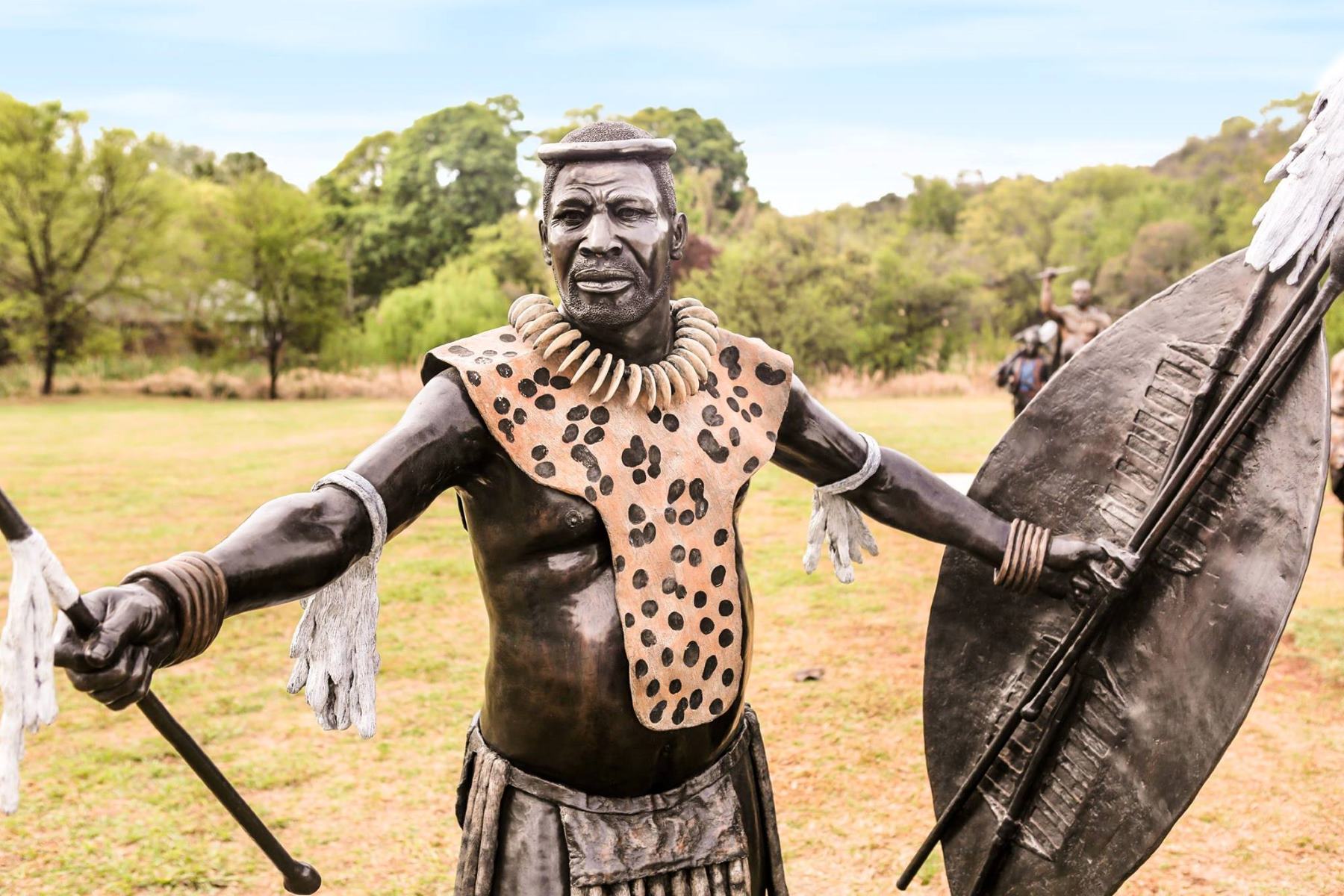
Dingane KaSenzangakhona was a significant figure in South African history, known for his role as a Zulu king. Born in 1795, he ruled from 1828 to 1840, succeeding his half-brother Shaka Zulu. Dingane's reign was marked by both internal strife and external conflicts, including clashes with the Voortrekkers, a group of Dutch settlers. His leadership style and decisions have been subjects of much debate among historians. Did you know that Dingane orchestrated the assassination of Shaka to claim the throne? Or that his defeat at the Battle of Blood River in 1838 was a turning point in Zulu history? Explore these and other intriguing facts about Dingane KaSenzangakhona to understand his complex legacy.
Key Takeaways:
- Dingane KaSenzangakhona was a Zulu king who rose to power by assassinating his half-brother, Shaka Zulu. His reign was marked by conflicts with the Voortrekkers and internal rebellions, leading to his eventual downfall.
- Dingane's legacy is complex, with historians debating his impact on the Zulu kingdom and South African history. His dramatic rise to power and eventual defeat by his half-brother, Mpande, shaped the region's history.
Early Life and Background
Dingane KaSenzangakhona, often simply called Dingane, was a significant figure in South African history. His life and reign were marked by notable events and decisions that shaped the region's history.
- Dingane was born around 1795, the exact date remains uncertain.
- He was the son of Senzangakhona, a Zulu chief, and one of his wives, Mpikase.
- Dingane was the half-brother of the famous Zulu king, Shaka Zulu.
- He grew up in the Zulu kingdom, learning the ways of leadership and warfare.
Rise to Power
Dingane's ascent to the throne was dramatic and controversial. His path to power involved strategic moves and alliances.
- Dingane became king after assassinating his half-brother, Shaka, in 1828.
- He conspired with his other half-brother, Mhlangana, and an induna (advisor) named Mbopa to kill Shaka.
- After Shaka's death, Dingane ordered the execution of Mhlangana and Mbopa to consolidate his power.
- Dingane's reign began with efforts to stabilize the kingdom and secure his position.
Reign as Zulu King
Dingane's rule was marked by both internal and external challenges. His leadership style and decisions had lasting impacts.
- Dingane moved the Zulu capital to Mgungundlovu, meaning "the place of the elephant."
- He faced numerous rebellions from within the Zulu kingdom, which he suppressed with force.
- Dingane's reign saw the expansion of the Zulu kingdom's territory.
- He maintained a large and powerful army to defend his kingdom and assert his authority.
Conflict with the Voortrekkers
Dingane's interactions with the Voortrekkers, Dutch settlers moving into Zulu territory, were a significant part of his reign.
- In 1838, Dingane met with Voortrekker leader Piet Retief to negotiate land settlements.
- Dingane initially agreed to grant land to the Voortrekkers but later accused Retief of stealing cattle.
- He ordered the execution of Retief and his party, leading to increased tensions.
- This event sparked the Battle of Blood River, where the Voortrekkers defeated the Zulu forces.
Decline and Death
The latter part of Dingane's reign was fraught with difficulties, leading to his eventual downfall.
- After the defeat at Blood River, Dingane's power began to wane.
- He faced increasing pressure from both internal factions and external enemies.
- Dingane's half-brother, Mpande, allied with the Voortrekkers and rebelled against him.
- In 1840, Mpande defeated Dingane's forces and became the new Zulu king.
- Dingane fled north but was eventually killed by the Swazi people.
- His death marked the end of his tumultuous reign and the beginning of Mpande's rule.
- Dingane's legacy remains complex, with historians debating his impact on the Zulu kingdom and South African history.
Dingane's Legacy
Dingane KaSenzangakhona's life was a mix of power, conflict, and cultural impact. As a Zulu king, his reign saw significant events like the assassination of his half-brother Shaka and the Battle of Blood River. Dingane's leadership style and decisions left a lasting mark on Zulu history. His complex relationship with European settlers and neighboring tribes shaped the region's dynamics. Despite his controversial actions, Dingane's legacy remains a crucial part of South African history. His story offers valuable insights into the challenges and triumphs of leadership during a turbulent era. Understanding Dingane's life helps us appreciate the rich tapestry of Zulu culture and the historical forces that shaped it. His legacy continues to be studied and remembered, highlighting the enduring significance of his rule.
Frequently Asked Questions
Was this page helpful?
Our commitment to delivering trustworthy and engaging content is at the heart of what we do. Each fact on our site is contributed by real users like you, bringing a wealth of diverse insights and information. To ensure the highest standards of accuracy and reliability, our dedicated editors meticulously review each submission. This process guarantees that the facts we share are not only fascinating but also credible. Trust in our commitment to quality and authenticity as you explore and learn with us.
